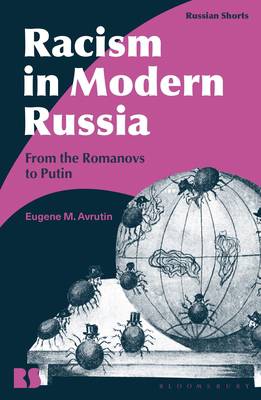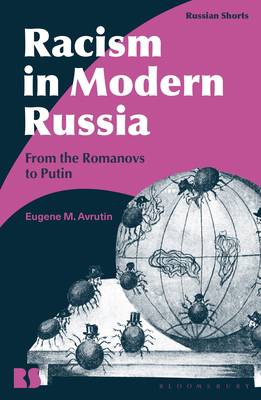
Bedankt voor het vertrouwen het afgelopen jaar! Om jou te bedanken bieden we GRATIS verzending (in België) aan op alles gedurende de hele maand januari.
- Afhalen na 1 uur in een winkel met voorraad
- In januari gratis thuislevering in België
- Ruim aanbod met 7 miljoen producten
Bedankt voor het vertrouwen het afgelopen jaar! Om jou te bedanken bieden we GRATIS verzending (in België) aan op alles gedurende de hele maand januari.
- Afhalen na 1 uur in een winkel met voorraad
- In januari gratis thuislevering in België
- Ruim aanbod met 7 miljoen producten
Zoeken
€ 115,45
+ 230 punten
Uitvoering
Omschrijving
In October 2013, one of the largest anti-migrant riots took place in Moscow. Clashes and arrests continued late into the night. Some in the crowd, which grew to several thousand people, could be heard chanting "Russia for the Russians" with their animus directed towards dark-skinned labor migrants from the southern border. The slogan "Russia for the Russians" is not a recent invention. It first gained notoriety in the very last years of the tsarist regime, appealing primarily to individuals drawn to the radical right. Analyzing a wide range of printed and visual sources, Racism in Modern Russiamarks the first serious attempt to understand the history of racism over a span of 150 years. A brilliant examination of the complexities of racism, Eugene M. Avrutin's panoramic book asks powerful questions about inequality and privilege, denigration and belonging, power and policy, and the complex historical links between race, whiteness, and geography.
The ebook editions of this book are available open access under a CC BY-NC-ND 4.0 license on www.bloomsburycollections.com.
The ebook editions of this book are available open access under a CC BY-NC-ND 4.0 license on www.bloomsburycollections.com.
Specificaties
Betrokkenen
- Auteur(s):
- Uitgeverij:
Inhoud
- Aantal bladzijden:
- 160
- Taal:
- Engels
- Reeks:
Eigenschappen
- Productcode (EAN):
- 9781350097278
- Verschijningsdatum:
- 24/02/2022
- Uitvoering:
- Hardcover
- Formaat:
- Genaaid
- Afmetingen:
- 127 mm x 203 mm
- Gewicht:
- 281 g

Alleen bij Standaard Boekhandel
+ 230 punten op je klantenkaart van Standaard Boekhandel
Beoordelingen
We publiceren alleen reviews die voldoen aan de voorwaarden voor reviews. Bekijk onze voorwaarden voor reviews.









